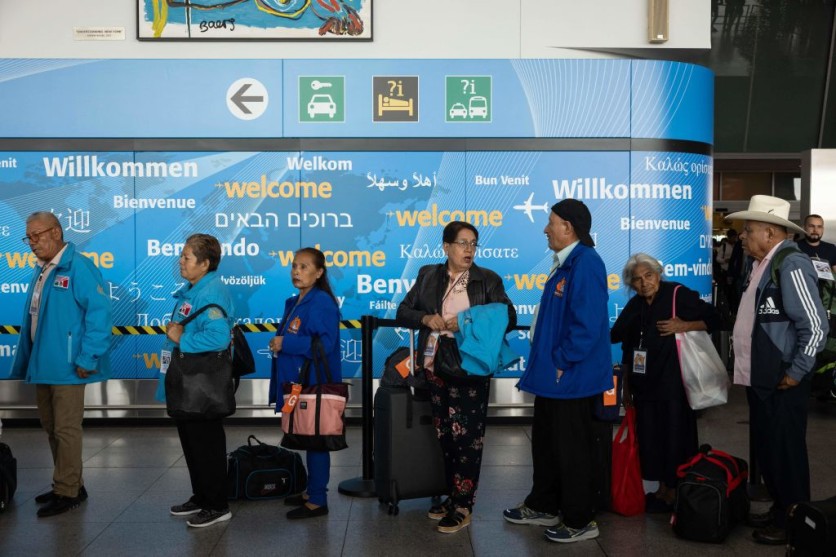The United States is set to impose visa bans on individuals associated with spyware targeting journalists and activists. Under this new policy, visas can be restricted for investors, company leaders, and individuals representing governments involved in unlawful surveillance.

Esteban Hernandez (R) and Irene Galicia (2nd R) wait in line with other relatives of undocumented families at John F. Kennedy International Airport in New York on June 25, 2023.
Promoting Accountability for Misuse of Commercial Spyware
In a significant development, Bloomberg reported that the United States has announced its intention to enforce global visa restrictions on individuals implicated in the improper utilization of commercial spyware.
This decision has far-reaching implications, potentially impacting prominent U.S. allies such as Israel, India, Jordan, and Hungary. The Verge reported that this underscores the Biden administration's concern regarding the widespread use of high-grade commercial spyware.
The technology has been employed by various governments globally to target numerous political dissidents, human rights activists, journalists, and legal professionals, posing a significant threat to U.S. national security and counterintelligence capabilities.
This move follows a three-year-old decision by the administration to include Israel's NSO Group in the U.S. Commerce Department's blacklist. Additionally, an executive order was issued, prohibiting the U.S. government's utilization of commercial spyware.
Israel stands at the forefront of global commercial spyware production, and the Biden administration's firm stance on these companies has become a diplomatic challenge between the two allies.
When effectively deployed against a target, spyware like NSO's Pegasus can surreptitiously infiltrate any phone without the user's awareness.
Government or intelligence agencies utilizing such spyware can covertly access a mobile phone user's photos, phone calls, text messages, and communications exchanged through encrypted apps like WhatsApp and Signal. Furthermore, it can function as a remote listening device.
In an official statement, Antony Blinken, the U.S. Secretary of State, highlighted that the misuse of commercial spyware has been linked to severe violations, including arbitrary detentions, forced disappearances, and extrajudicial killings in the most egregious of cases.
Attack on Journalists, Activists
Previous reports from media outlets have indicated that close associates of Saudi journalist Jamal Khashoggi were targeted and hacked with Pegasus before his tragic murder by Saudi agents inside the Saudi embassy in Istanbul in October 2018.
It's worth noting that NSO has previously asserted that its technology "was not associated in any way with the heinous murder of Jamal Khashoggi."
While NSO has consistently asserted that its technology had no involvement in the tragic murder of Jamal Khashoggi, The Guardian reported that the U.S. government has long regarded the widespread use of spyware, even by close allies, as a significant security threat.
This concern is particularly acute for U.S. government personnel, including diplomats and intelligence officials stationed abroad.
The State Department announced that the visa restrictions would extend to individuals from countries typically enjoying visa-free entry into the U.S., such as EU nations and Israel.
This constitutes a "global" visa ban, notifying potentially affected individuals that they are no longer eligible for visa-free travel and must apply for a visa at a U.S. consulate if intending to enter the country.
Related Article : Biden's Executive Order Sets New Limits on American Investment in Chinese Tech Firms, Concerning National Security

![Apple Watch Series 10 [GPS 42mm]](https://d.techtimes.com/en/full/453899/apple-watch-series-10-gps-42mm.jpg?w=184&h=103&f=9fb3c2ea2db928c663d1d2eadbcb3e52)



